Dyslexia Awareness Month
October is Dyslexia Awareness Month.
September 14, 2021
To learn more about dyslexia, visit the International Dyslexia Association, where you can find self-assessments, local resources, and the IDA Dyslexia Digital Library.
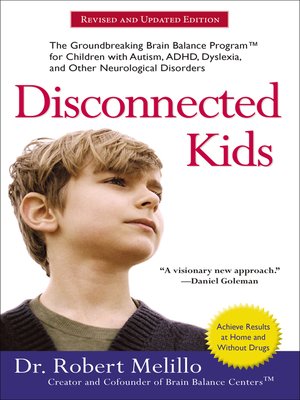
Disconnected Kids
The Groundbreaking Brain Balance Program for Children With Autism, ADHD, Dyslexia, and Other Neurological Disorders
Robert Melillo
Offering a bold new understanding of the causes of such disorders as autism, ADHD, Asperger’s, dyslexia, and OCD, an effective drug-free program addresses both the symptoms and causes of conditions involving a disconnection between the left and right sides of the developing brain, with customizable exercises, behavior modification advice, nutritional guidelines, and more.
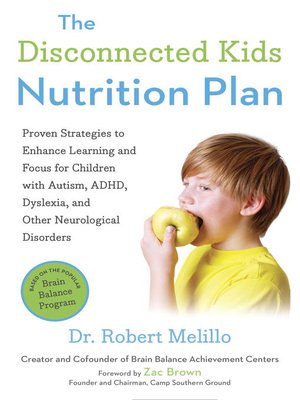
The Disconnected Kids Nutrition Plan
Proven Strategies to Enhance Learning and Focus for Children With Autism, ADHD, Dyslexia, and Other Neurological Disorders
Robert Melillo
Presents a drug-free, scientifically-based program for feeding kids with special needs, including autism spectrum disorders and ADHD.
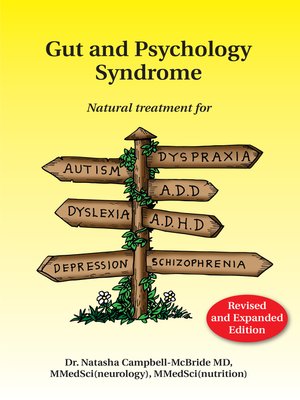
Gut and Psychology Syndrome
Natural Treatment for Autism, Dyspraxia, A.D.D., Dyslexia, A.D.H.D., Depression, Schizophrenia
Natasha Campbell-McBride
Dr. Natasha Campbell-McBride set up The Cambridge Nutrition Clinic in 1998. As a parent of a child diagnosed with learning disabilities, she is acutely aware of the difficulties facing other parents like her, and she has devoted much of her time to helping these families. She realized that nutrition played a critical role in helping children and adults to overcome their disabilities, and has pioneered the use of probiotics in this field.
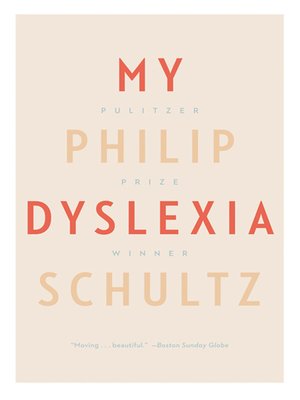
My Dyslexia
Philip Schultz
The Pulitzer Prize-winning poet recounts his difficult early years suffering from undiagnosed dyslexia when he was put in the “dummy class” at school and didn’t learn to read until age eleven but went on to achieve success as a writer.
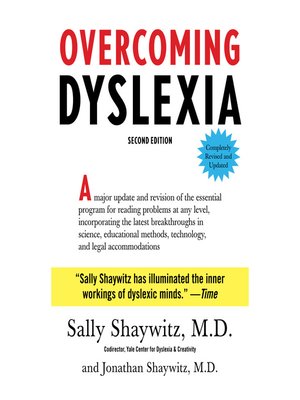
Overcoming Dyslexia
A Major Update and Revision of the Essential Program for Reading Problems at Any Level, Incorporating the Latest Breakthroughs in Science, Educational Methods, Technology, and Legal Accommodations
Sally Shaywitz, Jonathan Shaywitz
Updated to include advancements in science, research and technology, two experts on reading and dyslexia provide new information on identifying, understanding and overcoming reading problems and provide tools for parents, teachers and individuals with dyslexia to use to succeed.
Reading by the Colors
Overcoming Dyslexia and Other Reading Disabilities Through the Irlen Method
Helen Irlen
A revolutionary breakthrough for reading and learning difficulties, the Irlen Method provides a simple solution by eliminating a perceptual dysfunction (Scotopic Sensitivity Syndrome) that underlies twenty percent of reading difficulties with the use of transparent colored acetate sheets placed over reading materials.
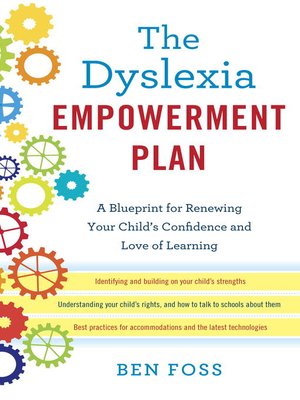
The Dyslexia Empowerment Plan
A Blueprint for Renewing Your Child’s Confidence and Love of Learning
Ben Foss
The inventor of the Intel Reader shares inspirational ideas for accessing the tools and learning accommodations needed by dyslexic students in school and life, outlining a three-step strategy for skill building and advocacy while sharing advice on how to harness personal strengths to advance long-term goals.
Available On Hoopla!
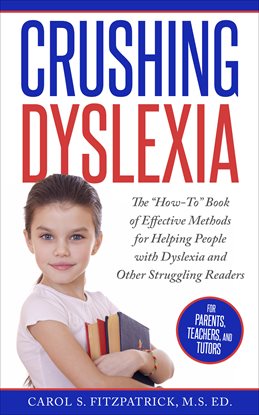
Crushing Dyslexia
The “How-To” Book of Effective Methods for Helping People With Dyslexia
Carol S. Fitzpatrick
This book is not another reading program—it is a book full of simple, multisensory, logical, and highly effective methods that can be applied to almost any quality reading program to make it much more appropriate for teaching a reading struggler. Every idea, accommodation, and technique in this book is Orton-Gillingham-based, and has been tested by Carol Fitzpatrick with her own students.
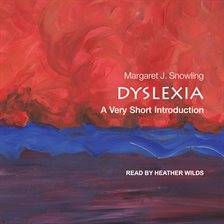
Dyslexia
A Very Short Introduction
Margaret J. Snowling
Since dyslexia was first described in the British Medical Journal in 1896, there has been debate about the definitions and diagnostic procedures used, with some casting doubt on its very existence. However, there is now a considerable body of research regarding the nature and characteristics of this relatively common learning disorder. This Very Short Introduction provides an accessible overview of this exciting field of research, beginning with its history, and drawing on testimony from people living with dyslexia.
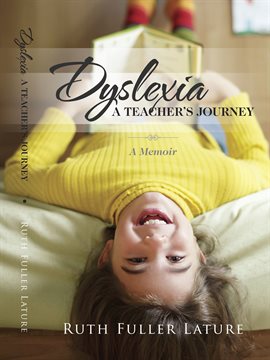
Dyslexia
A Teacher’s Journey
Ruth Fuller Lature
In this book, Lature mingles relevant information about dyslexia with humor as she shares her experiences with students from primary grades through adulthood. As a teacher of over thirty-five years and as an advocate for persons with dyslexia-her experience and insight is invaluable
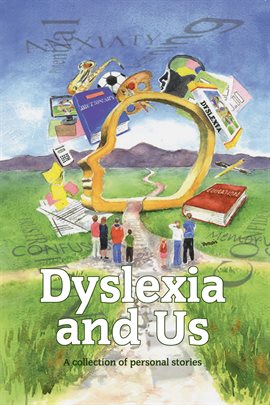
Dyslexia and Us
A Collection of Personal Stories
Susie Agnew, Sir Jackie Stewart
What do a member of the royal family, Olympic rowing champion, comedienne, retired construction worker, a job seeker, a parent, a prisoner and a vet have in common? They are among the many people who have shared their personal stories about what dyslexia means to them. Not every contributor is dyslexic but they have all been sufficiently affected by dyslexia to write their story.
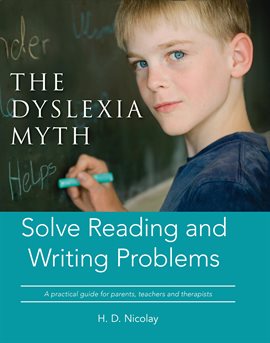
The Dyslexia Myth
Solve Reading and Writing Problems
H. D. Nicolay
This book is a practical “self help” guide for people of all ages with dyslexia and reading and writing disabilities. It provides easy to follow step-by-step instructions to acquire error-free spelling and improve reading and writing skills in English and other foreign languages.
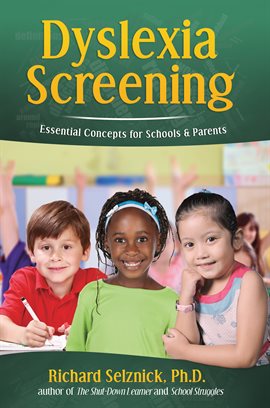
Dyslexia Screening
Essential Concepts for Schools & Parents
Richard Selznick
“Dyslexia Screening: Essential Concepts for Schools & Parents” is a guidebook intended primarily for school professionals, but will be useful for many other readers. Clinicians practicing outside the school setting, such as psychologists or learning specialists, will also find many of these concepts applicable to their practice. And this guide also will help parents understand the screening process and make informed decisions.
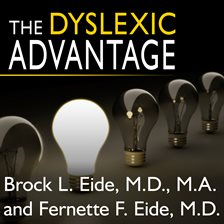
The Dyslexic Advantage
Unlocking the Hidden Potential of the Dyslexic Brain
Brock L. Eide, Fernette F. Eide
Dyslexia is almost always assumed to be an obstacle. And for one in five people who are dyslexic, it can be. Yet for millions of successful dyslexics, including astrophysicists, mystery novelists, and entrepreneurs, their dyslexic differences are the key to their success.
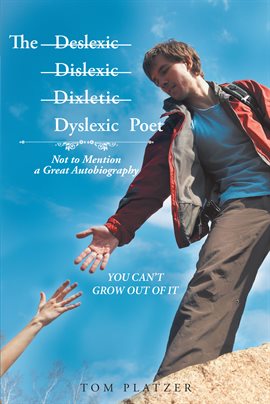
The Dyslexic Poet
Tom Platzer
An impelling pool of poetry that tackles significant and unforgettable moments in life as time passes by. “The Dyslexic Poet: Not to Mention a Great Autobiography” is the creation of published author Tom Platzer, a person who sees life changing at a fast pace but learns not to trust the opinions of other people.
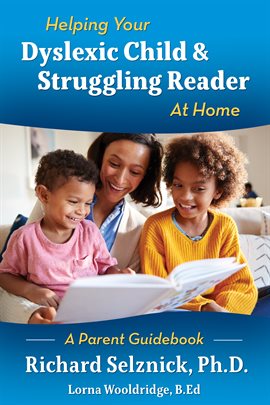
Helping Your Dyslexic Child & Struggling Reader at Home
A Parent Guidebook
Richard Selznick, Lorna Wooldridge
The guidebook is intended to give parents specific activities that they can do at home to help their child who is struggling in reading.
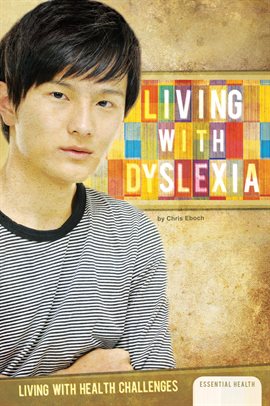
Living With Dyslexia
Chris Eboch
Living with Dyslexia features fictional narratives paired with firsthand advice from a medical expert to help preteens and teenagers feel prepared for dealing with dyslexia during adolescence. Topics include causes and risk factors, complications, tests and diagnosis, treatment methods, coping strategies, and giving and getting support.
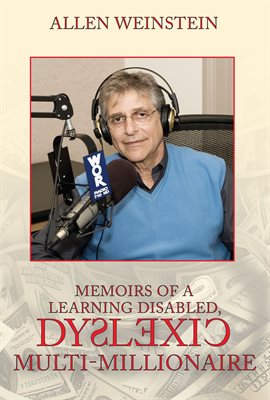
Memoirs of a Learning Disabled, Dyslexic Multi-Millionaire
Allen Weinstein
Describes how Allen Weinstein, at seventy-nine, has become who he is today, overcoming obstacles that were deemed impossible. He couldn’t read until he was thirteen and was labeled and written off by our educational system.
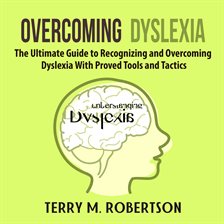
Overcoming Dyslexia
Terry M. Robertson
Have you asked yourself what is dyslexia? Learn about the signs of dyslexia in children as well as dyslexia treatment options.
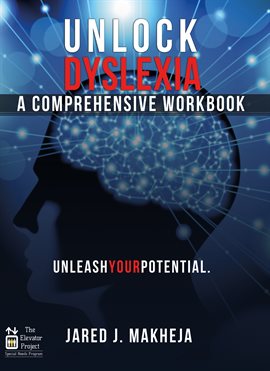
Unlock Dyslexia
A Comprehensive Workbook
Jared J. Makheja
Unlock Dyslexia begins with a comprehensive overview of dyslexia, how people are affected by it, and what are some learning aids to help those with dyslexia. Then, the workbook goes into three major impacted areas of dyslexia: the sense of sight, hearing, and spatial. For each of these impacted areas, there is a lesson on how to improve a) recognition, b) memory, and c) sequencing, along with body perception and spatial orientation.
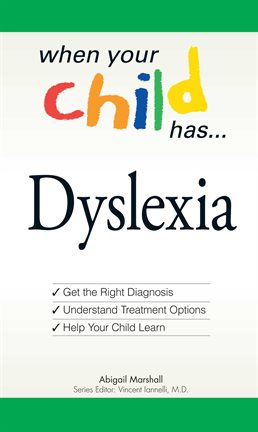
When Your Child Has… Dyslexia
Abigail Marshall, Vincent Iannelli
Covering information on every stage of diagnosis, treatment, and growth, this reference will help parents: teach children how to cope with educational, personal, and social difficulties; choose the right school and reduce academic struggles; maintain communication with their frustrated child; and more.
